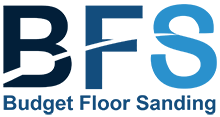When it comes to the installation of a new timber floor in your house one question will definitely arise in your mind which timber should I choose? The answer is indeed not simple. You should have ample knowledge about the different types of timbers available in the market and their pros and cons. By knowing so, it would be easier to choose which type of timber flooring would be the best for your house or office.
To make the decision easier for you, we have categorized timbers into two major divisions i.e.
- SOLID TIMBER
- ENGINEERED TIMBER
SOLID TIMBER FLOORING:
- Solid timber is the king of all when it comes to flooring. In addition to its durability, warmth, and lustrous appearance, it shows a high level of damage resistance and requires very low maintenance. The supreme choice of Brisbane homeowners for new floor installation or renovation of homes is always hardwood timber. It can be easily sanded and polished on an annual basis which reflects its built-in longevity.
- Surface smoothness provided by solid timber floors is unraveled. This evenness is due to the fact that there are no joining edges between the floorboards.
- You can also stain solid timber easily using the color of your choice as it takes the stain well and provides a quality look that is unachievable with engineered timber.
- The solid timbers are also eco-friendly in the manner that they are hypoallergenic. Fibers of some types of wood entrap allergens from the environment causing various breathing problems. Infants and elderly people, especially those with breathing disorders are more likely to be affected by such types of floors, causing the exacerbation of the disease. Toddlers are the ones who spent most of their time on the floor so they are likely to be affected by allergens entrapped in the microfibers of the wood. So keeping in view, the health benefits solid timber provides, it should be the first choice.
Of all the benefits, there are certain shortcomings as well. Hardwood floors are inclined to be damaged by climate changes and thus require some precautions to be adopted before the start of every season. The installation process takes time, for the timber needs to acclimate with the temperature and humidity levels of the space where it tends to be installed.
ENGINEERED TIMBER FLOORING:
- Engineered timber flooring as the name suggests, is a modified form of timber. It consists of a thin surface layer of hardwood over multiple layers of superior-quality plywood.
- It shows a remarkable resistance towards warping and is adaptable to varying humidity levels.
- In economic terms, engineered hardwood flooring is more pocket friendly as the installation cost is lower as compared to solid hardwood flooring.
- One of the additional benefits engineered floors provide is that they are also available in pre-finished form so the installation process is not time-consuming at all.
- As compared to solid hardwood flooring, engineered floorboards are not buckled together rather they have slightly beveled edges forming grooves between boards. This feature gives them their unique name i.e. floating floors.
Engineered floors have a drawback in a way that they cannot be sanded for long. The thin hardwood layer present on top cannot resist sanding multiple times and at a certain point, a time will come when the floorboards need to be replaced. This aspect decreases the life span of engineered floors. However, with regular care and maintenance of engineered floors, their quality and longevity can be fairly increased.
GET HELP:
Still, confused about the floor installation options? Get an expert opinion from Budget Floor Sanding. Our professionals are more than willing to give you a wise piece of advice and show you different samples with an explained overview of the pros and cons, making it easier for you to decide which type of flooring would be best suited for your home

